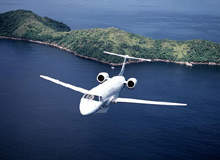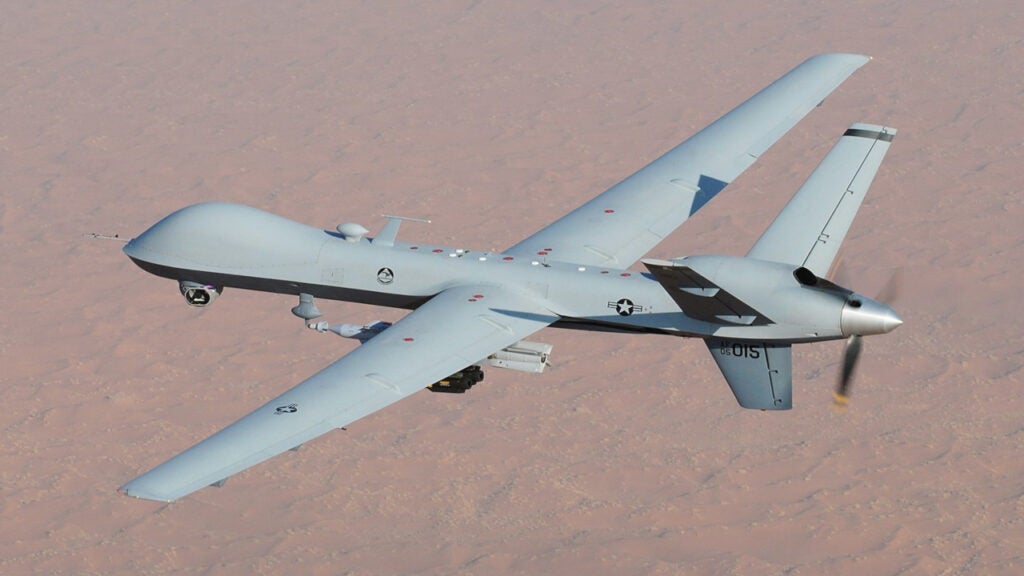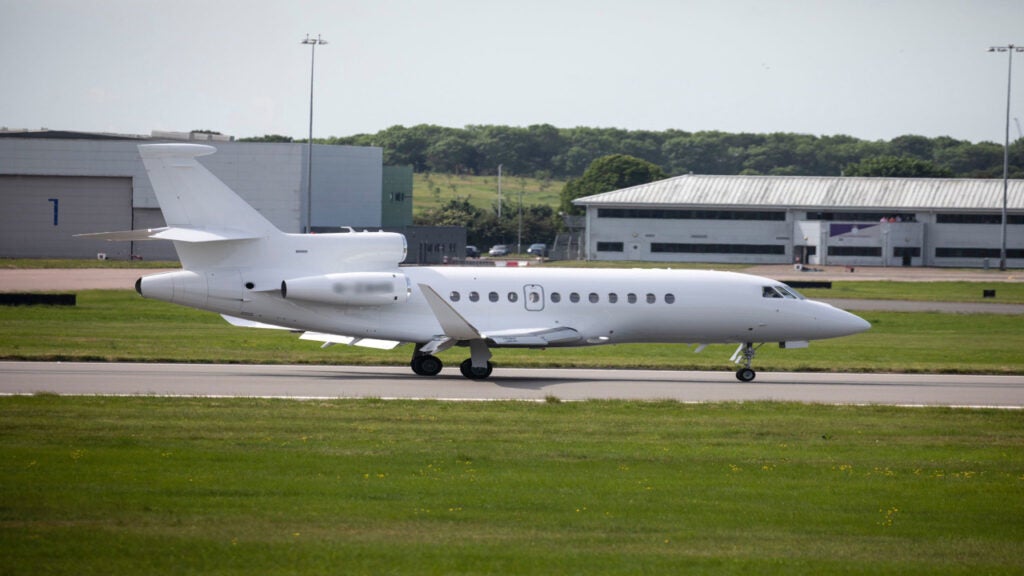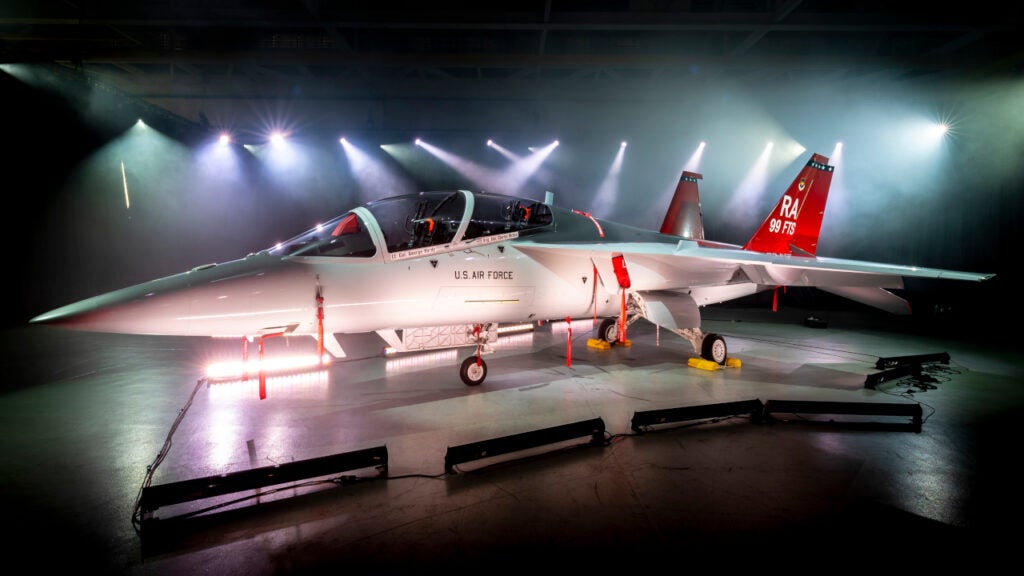
The EMB-145 AEW&C is a derivative of the Embraer ERJ-145 regional jetliner airframe, modified with the integration of an airborne early warning radar and mission system.
The aircraft incorporates a reinforced airframe, new navigation and communication systems, an enhanced auxiliary power unit (APU), increased fuel capacity and a revised interior layout.
EMB-145 AEW&C’s Ericsson ERIEYE radar
The EMB-145 AEW&C’s mission system is developed around the Ericsson ERIEYE active, phased-array pulse-Doppler radar and is integrated with an onboard command and control system. Electronic surveillance measures for monitoring communications and non-communications activities are also integrated with the system.
In 1997, Embraer was awarded a contract to develop and produce the ERIEYE-based EMB-145 AEW&C (designated R-99A) aircraft, together with another version of the same aircraft, the EMB-145 RS remote sensing (designated R-99B) variant, for the Brazilian Government’s SIVAM programme.
EMB-145 Erieye AEW&C orders and deliveries
The Brazilian Air Force (FAB) ordered five AEW&C and three EMB-145 RS aircraft. The first AEW&C aircraft was delivered to the Brazilian Air Force in July 2002 and deliveries were completed in December 2003.
The Hellenic Air Force of Greece has ordered four EMB-145 AEW&C. The first was delivered in December 2003 and deliveries completed in May 2005. Mexico has ordered one aircraft for border and coastline monitoring which was delivered in June 2004. Erieye radar systems have also been ordered by Sweden. In February 2005, Embraer signed a memorandum of understanding with India for the procurement of three systems.
In July 2008, a deal was finally signed, under which Embraer will supply three ERJ-145 aircraft and perform the modifications required to carry the active array antenna unit (AAAU) AEW&C system developed by India’s Centre for Airborne Systems (CABS) of Defence Research and Development Organisation (DRDO). The first EMB-145 aircraft completed its maiden flight in December 2011. It was delivered to the Government of India in August 2012. The aircraft will subsequently be delivered to the Indian Air Force after the installation of DRDO missions systems in India.
A fleet of three aircraft is sufficient to sustain two airborne patrols around the clock for a limited time, or one airborne patrol with one aircraft on continuous ground alert for more than 30 days. Although capable of long endurance at normal patrol speeds, the EMB-145 has a high dash speed which contributes to survivability on patrol missions.
The EMB-145 AEW&C crew includes the pilot and co-pilot, five mission systems specialists and up to three reserve crew members. The aircraft is equipped with five or six mission operator consoles.
Cockpit
The all-glass cockpit is fitted with five displays – primary flight displays, multi-function displays and the engine indication and crew alerting system (EICAS) – with multi-reversionary capabilities.
Avionic systems include full TACAS II (traffic alerting and collision avoidance), a ground proximity warning system (GPWS) and windshear detector. Dual digital air data computers drive the attitude and heading reference system (AHRS).
The pilot is provided with a head-up display particularly for landing guidance. The aircraft has two radio altimeters and an instrument landing system. A dual integrated computer controls the autopilot flight director (APFD), windshear detector and EICAS.
ERIEYE active, phased-array pulse-Doppler radar
ERIEYE has been developed by Ericsson Microwave Systems. The system comprises an active, phased-array pulse-Doppler radar including integrated secondary surveillance radar and identification friend or foe (SSR/IFF), a comprehensive, modular command-and-control system, electronic support measures (ESM), communications and datalinks.
Rather than conventional rotodome antenna system, ERIEYE has a fixed, dual-sided and electronically scanned antenna mounted on top of the fuselage. This places much less demand on aircraft size and is designed for mounting on commuter-type aircraft. The ERIEYE is capable of 360° detection and tracking of air and sea targets over the horizon. The instrumented range is 450km and a typical detection range against a fighter aircraft size target is in excess of 350km.
The system uses advanced solid-state electronics, open-system architecture and ruggedised commercial off-the-shelf (COTS) hardware, including general-purpose programmable workstations and full-colour LCD displays. The ERIEYE radar is already in service with the Swedish Air Force and is in series production for Brazil and other customers.
SIVAM Amazon Basin survey programme
The SIVAM programme is designed to survey the entire Amazon Basin, an area considerably greater than that of Western Europe. Eight aircraft, five for surveillance and three for remote sensing are used for environmental protection, natural resources survey, border surveillance and support of sustained development in the Amazon region. The aircraft are operated by FAB from the Annapolis air force base.
The EMB-145 RS remote sensing aircraft is equipped with synthetic aperture radar, forward-looking infrared / television (FLIR/TV), multi-spectral scanner, COMINT communications intelligence suite, ELINT electronics intelligence system and an on-board recording and processing system. The RS aircraft will be capable of providing updated mapping information and imagery of the area.
The Global Military Aircraft Market 2011-2021
This project forms part of our recent analysis and forecasts of the global military aircraft market available from our business information platform Strategic Defence Intelligence. For more information click here or contact us: EMEA: +44 20 7936 6783; Americas: +1 415 439 4914; Asia Pacific: +61 2 9947 9709 or via email.




